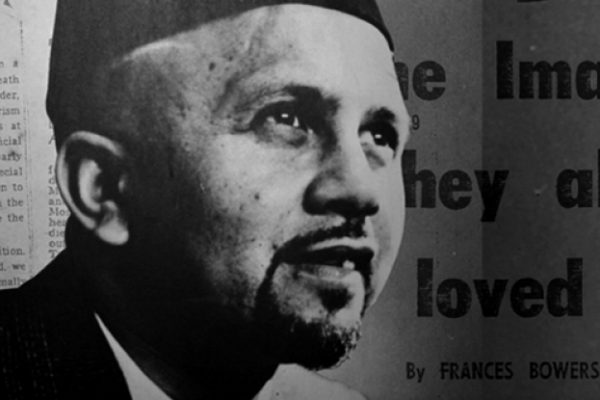These policies have deep historical roots in our western society.
These policies have deep historical roots in our western society.
“If only they would understand what we are trying to do for them.”
A.O.Neville Rabbit-Proof Fence, 2002
Reminiscent of Kipling’s poem, ‘The White Man’s Burden’, various forms of authority over the years have sought to forcibly take custody of children from minority groups in an effort to ‘re-educate’ them and ‘civilise’ them; saving them from an otherwise inevitable barbaric lifestyle as destined by their skin, culture, and class.
A particularly infamous case is the historically unjust treatment of the aboriginal people, by the Australian state, who were assigned a “protector” that held ultimate power over aboriginal children and mixed-race children. The poignant 2002 film ‘Rabbit Proof Fence’ looked at A. O. Neville’s, a protector from 1917 to 1936, exercise of the State’s policy of ‘breeding out colour’ which went as far as (legally) kidnapping mixed-race children and “curing” their future lineage of its blackness by mating them with the white community and ‘breeding out colour’. The policy involved isolation of the children from their hereditary influence, re-modelling them into an image amicable to the authority, and then forcing them to assimilate with the majority community in a highly regulated manner.
Now called the ‘stolen generation’, it is estimated that between one in ten and one in three Aboriginal children were taken from their families between 1910 and 1970 in Australia as a consequence of this policy. A. O. Neville, when criticised on this policy, said:
“If we are going to fit and train such children for the future they cannot be left as they are…I want to give these children a chance”.
Another case is that of Estelle Reel, USA National Superintendent of Indian Schools from 1898 to 1910, who removed Native American children from their families claiming that “the Indian child must be placed in school before the habits of barbarous life have become fixed and there he must be kept until contact with our life has taught him to abandon his savage ways and walk in the path of Christian civilisation”; unambiguously demonstrating that the US’s exercise of tearing apart from families is unfortunately hardly unique to the Trump administration. It is also telling that Reel, having written a number of articles referring to herself in the third person, poised herself as a saviour to the Native American people, having stated in one article that:
“So fond of [Estelle Reel] are some of the Indians that they are willing she should take their children away”.
The British Empire, in all of its imperialistic majesty and cruelty against its colonialist subjects, also practised domestic policies which separated children from their families and justified them through the lens of the “White Man’s Burden”. The Empire saw fit to remove thousands of children from British families and ship them to its colonies including Australia, Canada, New Zealand, and Southern Rhodesia (now Zimbabwe) beginning in 1618 and not ending until at least the 1970s. The measures, targeting children primarily from deprived backgrounds, were used by the British Empire to alleviate the shortage of labour in her many colonies, routinely resulting in widespread abuse. One testimony, in fact, noted that conditions were so bad that they are “better described as torture than abuse”. The measures, however, were again framed through the lens of the authority body acting in the manner of a saviour.
Indeed, John Eekelaar, Co-Director of the Oxford Centre for Family Law and Policy (OXFLAP), noted in his paper, “‘The Chief Glory’: The Export of Children from the United Kingdom”, that:
“It would seem that the enthusiasm of the proponents was rooted in their mission of rescue and the vision of exploiting lands of endless opportunities”.
This policy exercised by the British Empire is also notable in the sense that the prior example was explicitly based on race whereas this was based more so on class. Therefore, the idea of child separation being rooted in the ‘White Saviour’ complex is limited as even that is placed within classist struggle. Indeed, the ‘White Saviour’ complex was born out of the ideas of and promulgated by the ruling class intellectuals of the day, including by Herbert Spencer, Immanuel Kant, and Thomas R. Cobb. In other words, it was the White elites who taught and justified to the rest of society that Black people were inferior to White people and then at times that the poor had to be utilised as tools to cultivate the world in their image.
This racist, classist endeavour to (re-)educate, and seemingly ‘re-program’, children to be more appeasing to the image chosen by the ruling white elite is still very much present today not just in Trump’s America but also in our Europe.
Only recently, Denmark introduced a set of laws as part of the ‘Ghetto deal’ which target 25 residential areas with a significant population of ethnic minority communities, a major proportion of whom are Muslims, aiming to contain, re-educate, and assimilate them into the image favourable to the majority. A particularly notorious aspect of the deal involves children from the age of one being separated from their families for at least 25 hours a week to be educated on “Danish Values”. This is not compulsory for communities found outside of the ‘ghettoes’, indicating that such communities are the ‘correct’-form of a population and the ghetto population the ‘incorrect’-form.
Often cast as the pinnacle of global anti-racist movements, the UK also continues to actively and unabashedly exercise policies that tear families apart, now through the lens of securitisation of the state, aiming to educate communicates “at risk” on how to behave and assimilate within the larger majority and in their effort to do so – tearing families apart.
Muslim communities, informally established by the Government to be uniquely at risk of radicalisation, have been disproportionally targeted by the UK’s counter-terror apparatus PREVENT which, intentionally or unintentionally, has resulted in the attempted containment of Muslim religious and political agency. In this way, PREVENT is a novel manifestation of a pre-colonial notion of taming the ‘barbarian’ to participate appropriately in civic life. In this case, taming the innate barbaric nature of Muslims and their manifestation of Islam.
The new report by CAGE, an independent grassroots organisation that campaigns against discriminatory state policies, entitled: “Separating Families: How PREVENT Seeks the Removal of Children”, documents and highlights a number of incidents where this has occurred. In one instance, the state attempted to remove a six-year-old child from his mother, allegedly following the referral by the counter-terrorism police, under the guise of safeguarding. The mother of five found herself at the receiving end of a Section 47 assessment which means that the Children’s Social Care (CSC) “must carry out an investigation when they have ‘reasonable cause to suspect that a child who lives or is found in their area is suffering, or is likely to suffer, significant harm’”.
However, it was not the physical safety of the child that was the problem but moreover the child’s exposure to his mother’s religion and belief, which were alleged to be ‘extreme’. Indeed, speaking of an interview that the mother was forced to undergo from social workers, she says:
“I felt like it was my religion and belief that was on trial”.
How the social services considered religion and belief of the mother a strong enough cause of concern is unclear and remained unclear even to the judge who ruled on the case. The judge reprimanded the local authorities for prolonging the case unnecessarily and noted that the mother was in no form an extremist and, as such, the children were not in any form of danger. The fault of the mother was that she actively exercised her religious and political agency, and this was inferred to be extreme because the UK’s counter-terror apparatus has, in effect, categorised the expression of ‘Muslim agency’ as being alternative to mainstream values and thought.
Therefore, State policies that separate children from families which fail to represent the values and beliefs favourable to the authority, and moreover fail to conform, are actively being exercised by our Government in an effort to ‘re-program’ the children. These policies have deep historical roots in our western society and the problems have been documented but are forgotten, a hideous example of societal amnesia.
In a true democracy, and to actually realise a post-racial, post-discriminatory world, it is imperative that policies are not constructed along the lines of ethnoreligious or political identity to contain the agency of a particular group but rather be in the best interest of all groups regardless of whether they are the majority or the minority.





